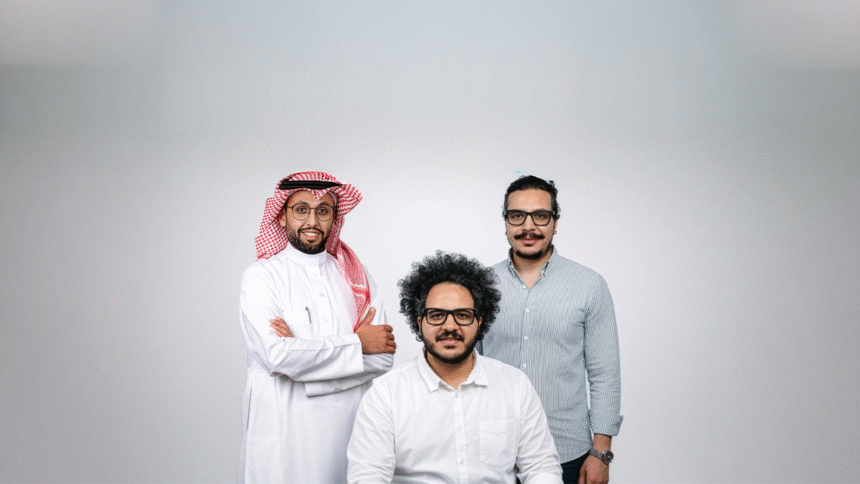Velents(dot)ai, a rising Egypt-Saudi artificial intelligence startup, has raised $1.5 million in fresh funding from angel investors, including senior executives from Google and Boston Consulting Group (BCG).
The funding marks a significant boost to the company’s ambition of transforming enterprise operations across the Middle East through localized AI solutions.
Co-founder and CEO Mohamed Gaber described the milestone as a leap toward empowering businesses with an intelligent, culturally aware digital workforce.
“We’re delivering a real digital employee who works alongside human teams. Our goal is to empower Arab companies with an intelligent worker who understands their language, their dialect, and enhances their daily productivity,” he said.
What is Velents(dot)ai and What It Does
Founded by Mohamed Gaber and Abdulaziz Almuhaydib, Velents(dot)ai started as a recruitment-focused platform designed to help companies attract and assess talent using AI.
Headquartered across Egypt and Saudi Arabia, the startup pivoted in 2023 into a broader AI enterprise solutions company, integrating automation and natural language technologies to streamline how organizations manage their operations.
Its tools help companies identify, attract, and retain talent, as well as optimize communication and workflow.
The company’s evolution reflects a growing regional trend of AI adoption among Middle Eastern firms seeking to localize digital transformation in languages beyond English.
What is Agent(dot)sa and the Services It Offers
At the heart of Velents’ innovation is Agent(dot)sa, a fully autonomous AI-powered digital employee fluent in Arabic and its many dialects.
The tool functions like a human assistant within a company, capable of handling phone calls, managing WhatsApp and Telegram conversations, responding to customer requests, analyzing data, and executing tasks.
Unlike traditional chatbots, Agent(dot)sa operates without translation layers or complex interfaces, offering seamless Arabic interactions across industries such as banking, telecommunications, logistics, and healthcare.
The AI employee can function 24/7, managing thousands of customer interactions simultaneously, which the company says could drastically reduce operational costs and improve service response times across Arabic-speaking markets.
Velents’ Plans for the New Fund
The newly raised $1.5 million will be channeled into research, product development, and market expansion, according to company sources.
Velents plans to enhance Agent(dot)sa’s conversational capabilities, expand its support to more dialects, and integrate advanced data analytics tools for enterprise users.
The firm also aims to scale across the Gulf Cooperation Council (GCC) region, positioning itself as a leader in Arabic-first enterprise AI.
With demand for regional AI tools expected to grow by over 25% annually in the Middle East (according to industry projections), Velents’ funding positions it to compete with international firms offering English-dominant solutions.
Why This Matters
Velents(dot)ai’s achievement underscores the growing importance of localized AI in emerging markets.
While global giants like OpenAI and Anthropic dominate English-language AI models, there remains a wide linguistic and cultural gap in digital systems that cater to Arabic-speaking users, a market representing more than 400 million people across 22 countries.
By focusing on Arabic-first AI infrastructure, Velents is addressing not only a linguistic need but also a strategic economic opportunity, as governments across the Middle East invest heavily in digital transformation.
As Gaber noted, Velents’ mission is “to empower Arab companies with an intelligent worker who understands their language,” a vision that could redefine how AI integrates into the region’s business fabric.
Talking Points
Velents(dot)ai’s rise represents more than a startup success story, it speaks of a turning point in the localization of artificial intelligence across the Arab world.
By developing Agent(dot)sa, an Arabic-speaking AI employee that understands regional dialects and cultural nuances, the company is addressing one of the most persistent barriers in the AI landscape: linguistic exclusivity.
Yet, while its $1.5 million funding is promising, the real challenge will lie in scaling technical precision and user trust across industries that still rely heavily on human oversight.
The ambition to replace or augment human interaction in Arabic with AI brings questions about data security, dialectal diversity, and ethical deployment, areas that require robust regulation and transparency.
Still, Velents(dot)ai’s initiative stands as a bold and necessary stride toward decolonizing AI, proving that innovation in artificial intelligence need not be filtered solely through English or Western paradigms.
_______________________
Bookmark Techparley.com for the most insightful technology news from the African continent.
Follow us on X/Twitter @Techparleynews, on Facebook at Techparley Africa, on LinkedIn at Techparley Africa, or on Instagram at Techparleynews






